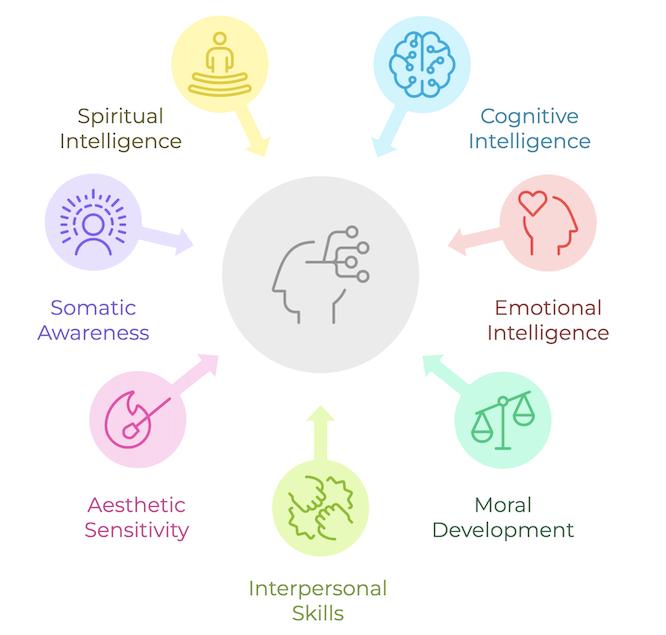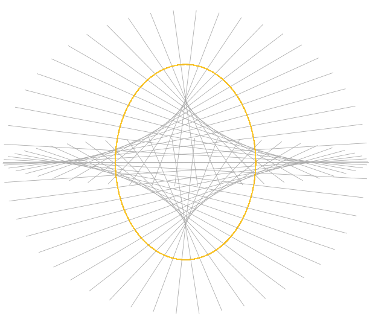Francisca Niklitschek
Contributing Authors
Dmitrij Achelrod PhD
Francisca Niklitschek
It’s tempting to believe that deep meditative states, psychedelic insights, or moments of mystical awakening equate to inner evolution. After all, shouldn’t a profound encounter with the divine also make us wiser, kinder, more ethical? Shouldn’t someone who speaks of love, unity, and transcendence embody those very ideals? But the evidence suggests otherwise.
We’ve seen this paradox time and again: the yoga teacher who abuses students, the meditation guru with a rage problem, the plant medicine facilitator lost in ego. Enlightenment stories mixed with misconduct. Ecstasy followed by exploitation. The deeper we look, the more one unsettling truth keeps resurfacing: it is entirely possible to feel deeply connected to the divine while remaining emotionally reactive, morally inconsistent, or relationally immature.
This disturbing mismatch is not a bug in the system, it’s a feature we must learn to see clearly.
In this third installment of our series on spiritual bypassing, we explore why inner awakening doesn’t always lead to wholeness. In the first post, we unpacked what spiritual bypassing is, how to recognize it, and how to begin working through it. The second post explored how psychedelics can either illuminate this pattern, or deepen our entanglement in it. Now, drawing on integral developmental frameworks, we’ll examine how the human psyche grows in multiple, often independent, dimensions, and how being advanced in one area (like spiritual insight) doesn’t automatically uplift the others (like emotional intelligence or moral reasoning).
We’ll also turn a critical eye to the cult of the spiritual teacher and the risks that arise when we project perfection onto those who appear awakened. Through this lens, we’ll confront uncomfortable but necessary questions about power, charisma, and the shadow side of spiritual authority.
This is not a takedown of spirituality, it’s an invitation to take it deeper. To stop confusing peak states with stable traits. To cultivate discernment alongside devotion. To integrate, rather than escape.
1. One Self, Many Lines: Understanding Human Development Beyond the Spiritual
When someone has peak spiritual experiences , whether through meditation, prayer, breathwork, or psychedelics, it often feels like they’ve “arrived.” And those around them may start projecting wisdom, purity, or authority onto them. But spiritual insight isn’t the same as emotional maturity, psychological integration, or ethical clarity. These are different lines and awakening in one doesn’t automatically lift the others.
If spiritual awakening were enough to make us whole, the world would be full of enlightened saints with spotless track records. But as history and many of our personal experiences make painfully clear, that’s far from true.
1.1 Introducing Ken Wilber’s Integral Theory
To make sense of this, we need a more multi-dimensional map of human development. One of the most compelling frameworks for this comes from philosopher Ken Wilber and his Integral Theory [1], which invites us to see the self not as a single line climbing toward enlightenment, but as a constellation of evolving intelligences, each growing (or not) in its own time.

According to Wilber, human beings don’t develop in just one direction. Instead, we evolve through multiple “lines of development”, distinct but interrelated dimensions such as [1] [2] [3]:
- Cognitive intelligence: our capacity to think, reason, and understand complex ideas.
- Emotional intelligence: our ability to recognize, regulate, and respond to emotions, both ours and others’.
- Moral development: our sense of right and wrong, justice, empathy, and ethical responsibility.
- Interpersonal skills: how we relate, connect, and build relationships with others.
- Aesthetic sensitivity: our openness to beauty, art, and harmony.
- Somatic/kinesthetic awareness: how we inhabit and understand our body.
- Spiritual intelligence: our capacity for transcendence, presence, and connection with the sacred.

1.2 Differential Development
Each of these lines develops along its own trajectory, sometimes in harmony, often unevenly. You might be a brilliant theorist but emotionally volatile. A gifted meditator who manipulates people. A social justice advocate with no access to stillness or silence.
This is what Wilber calls “differential development” [4], and it’s one of the most liberating and humbling ideas we can embrace: you can be highly evolved in one line and shockingly immature in another.
Understanding the uneven nature of human development isn’t just a philosophical insight, it’s something we all live. And once you start seeing these patterns, you can’t unsee them. Let’s explore some real-life asymmetries of development:
- Spiritual Heights, Emotional Storms
They’ve sat through 10-day silent retreats. They quote Rumi at breakfast. They talk about “being present” and “living in flow,” but screams when their Wi-Fi cuts out.
This person may indeed have touched states of oneness, but they haven’t built the emotional muscles to deal with conflict, boundaries, or vulnerability. Their awakening lives in the clouds, not in the nervous system.
- Cognitive Mastery, Moral Muddle
They can deconstruct Buddhism, neuroscience, and quantum physics in the same breath. They have a podcast. They write Medium articles about “deconstructing the self.” And yet, they justify lying to their partner “for the sake of non-attachment,” or manipulating followers because “truth is relative.”
This person may dazzle you with logic and complexity, but their ethical framework hasn’t matured. They mistake cleverness for wisdom.
- Empathetic Glow, Cognitive Haze
They’re so nice. They can sense everyone’s energy. They’ll cry with you, hold you, feel you. But when it comes to navigating nuanced ideas or systemic complexity? They can struggle to spot manipulation or set boundaries, sometimes mistaking intense emotions for deeper connection.
They may get hurt easily, give too much, blurring the line between empathy and overextension. Their heart is wide open, but they’re still learning to balance it with discernment.
- Somatic Grace, Inner Unexplored
They move like a poem. They breathe beauty. Their Instagram is a gallery of handstands on mountaintops. And yet, their relationships are a mess. They ghost people, belittle others in subtle ways, or lean heavily into performative “light and love.”
Here, the body is the temple, but the psyche remains unexamined. Trauma gets bypassed through movement, not metabolized.
1.3 Why it Matters for Seekers
These aren’t caricatures. They’re composites, echoes of real people, real leaders, and, if we’re honest, real parts of ourselves. Recognizing these imbalances isn’t about blame. It’s about breaking the spell that says “spiritual means superior”.
It’s entirely possible to have advanced development in one line and be arrested in another. And when society (or a community) rewards one line like charisma or insight, without accountability in others, the results can be dangerous. Which brings us to the next chapter:
2. The Shadow Side of Awakening: Authority, asymmetry, and abuse
It’s precisely this asymmetry in development lines that explains why some of the most charismatic spiritual leaders have also behaved in deeply abusive, contradictory, or narcissistic ways. They might have had genuine access to the divine, but remained underdeveloped in their emotional or moral intelligence.
Once we understand that human development unfolds along multiple lines it becomes clear why the myth of the “fully enlightened guru” is not only misleading but deeply dangerous. This mismatch can go unnoticed, especially when wrapped in charisma, robes, Sanskrit quotes, or psychedelic eloquence. It also goes unquestioned, thanks to the cult of enlightenment we often build around them.
2.1 The Pre/Trans Trap: Confusing the Child with the Sage
2.1.1 What’s the Pre/Trans Fallacy?
Wilber came up with this idea to explain a common mix-up about how people grow and think [5]. He says humans develop through three big zones of consciousness:
- Pre-rational: Think of this as the “toddler” phase. It’s magical, emotional, and sometimes a bit chaotic, like believing in fairy tales, or following a leader blindly because they seem powerful. It’s not bad; it’s just early-stage thinking, like when a kid thinks the moon follows them home.
- Rational: This is the “scientist” phase. You start using logic, reason, and evidence, like figuring out the moon’s just a big rock in space. Most adults hang out here, analyzing the world with clear, practical thinking.
- Trans-rational: Now we’re at the “sage” level. This is where you go beyond logic but still include it. Think of deep spiritual insights, meditative bliss, or a profound sense of connection to the universe. It’s not anti-science, it’s just bigger, like seeing the world as both a scientist and a poet.
The pre/trans fallacy happens when people confuse the pre-rational (toddler) with the trans-rational (sage). It’s like mistaking a kid’s crayon scribbles for a masterpiece by a zen master. Or, the other way around, dismissing a sage’s wisdom as childish nonsense. Both mistakes cause big problems!

For instance, a pre-rational person might believe that wearing a specific charm will literally protect them from all harm, based on an undifferentiated magical worldview. Someone operating from a trans-rational perspective might experience a deep, interconnected sense of universal protection or flow, but they wouldn’t confuse this profound feeling with a literal, magical shield. The fallacy occurs when we view the pre-rational magical belief as an advanced “spiritual” insight.
A pre-rational approach to authority might involve blindly accepting a guru’s every word without questioning, simply because they are perceived as powerful or “enlightened.” A trans-rational individual might develop profound trust in the universe or a spiritual path, but this trust is often built upon deep personal insight, experience, and an awareness that encompasses, rather than bypasses, critical discernment. Confusing the unquestioning, often naive, acceptance of the pre-rational with the deep, embodied trust of the trans-rational is a classic instance of the fallacy.
This understanding of distinct developmental stages is beautifully complemented by the Zen Buddhist concept of “Beginner’s Mind” (Shoshin) [6]. While not a stage of development itself in Wilber’s sense, “Beginner’s Mind” illustrates a quality of consciousness that can be cultivated at the trans-rational level, yet might be superficially mistaken for a pre-rational state.
A child naturally possesses a form of “beginner’s mind”: a spontaneous openness, curiosity, and lack of preconceived notions as they encounter the world. This is a pre-rational innocence, characterized by an undifferentiated awareness that simply takes things as they are, without the filters of established knowledge or judgment.
However, the Zen ideal of “Beginner’s Mind” is something far more profound and intentionally cultivated. It’s a trans-rational state achieved through rigorous practice and deep insight. It means approaching a subject, even one where you’re an expert, with the same openness, eagerness, and lack of fixed ideas a beginner would have. This isn’t born from ignorance, but from the wisdom of realizing the limits of one’s own knowledge and the endless possibilities for deeper understanding. It involves a conscious, deliberate letting go of ego, assumptions, and learned frameworks to perceive reality with renewed clarity and directness. This highly refined state includes the capacity for rational thought but transcends its rigid boundaries, offering a more expansive and adaptable way of knowing.
The authentic “Beginner’s Mind” is a testament to the sophisticated simplicity attainable at the trans-rational stage, integrating intellectual mastery with an open, ever-learning spirit. Confusing this true “Beginner’s Mind” with simple, pre-rational naivety is a perfect example of the pre/trans fallacy in action. One is a peak of integrated understanding; the other is merely an early stage of development.
2.1.2 States Are Not Stages: Why Peak Moments Don’t Equal Mastery
Wilber is super clear on this: “States are not stages.” You can have a mind-blowing spiritual experience (a state) like feeling divine bliss during meditation. But that doesn’t mean you’re permanently living at the sage level. You might wake up tomorrow and still be a hot mess, yelling at your roommate over dishes (classic pre-rational vibe). A temporary state of transcendence doesn’t mean you’ve mastered the stage of trans-rational wisdom.
The pre/trans fallacy is like a cosmic case of mistaken identity. Next time you see someone acting “spiritual” but kind of off, ask yourself: Are they truly above the game, or are they just not even playing it yet? And if you’re chasing enlightenment yourself, remember: a flashy spiritual moment doesn’t make you a master. Real growth takes time, self-awareness, and a willingness to face your own messiness over and over again.
2.2. The Guru Trap: How the Pre/Trans Mistake Fuels Authority and Abuse
2.2.1 Mistaking Immaturity for Transcendence
Imagine a charismatic guru who claims to be “above morality” or “beyond good and evil.” They might have wild emotional outbursts, demand total loyalty, or act like rules don’t apply to them. Some followers might go, “Wow, they’re so enlightened! They’ve transcended normal human stuff!” But hold up, what if they’re not above morality but below it? Maybe they’re just emotionally immature, manipulative, or stuck in a pre-rational mindset where they act like a toddler king, craving control and attention.
This mix-up is common in spiritual circles. People might see a guru’s anger and call it “divine shakti” (spiritual energy) or excuse their coldness as “detachment.” But it’s more likely that those behaviors are just dysfunction disguised as divine energy or spiritual detachment.

In the growing world of modern spirituality, where seekers turn to gurus, coaches, and facilitators for meaning and transcendence, Geoffrey D. Falk drops a bomb. His book, Stripping the Gurus [7], is not subtle. It’s a controversial exposé of some of the most revered spiritual leaders of the last century. Beyond the gossip, it raises a question that echoes deeply through our collective psyche: What happens when we surrender critical thinking in the name of transcendence?
Falk’s book details numerous cases where prominent spiritual figures, despite their profound teachings and large followings, exhibited behaviors starkly at odds with the wisdom they espoused. For instance, he recounts the alleged sexual misconduct of Swami Muktananda, a widely respected Siddha Yoga guru, whose purported enlightenment didn’t prevent accusations of exploiting his power over female devotees. Similarly, Falk shines a light on the intricate web of financial and ethical controversies surrounding figures like Chögyam Trungpa, a key figure in bringing Tibetan Buddhism to the West, whose teachings on “crazy wisdom” were often accompanied by reported heavy alcohol consumption and sexual exploits.
The message is clear: spiritual authority doesn’t make someone immune to ego, impulse, or abuse. This profoundly echoes what Wilber outlines in his concept of developmental lines: you can have high spiritual realization and still be morally or emotionally immature. Enlightenment is not the end of growth; it’s one line among many, and often, not the most integrated.
2.2.2 When Spiritual Bypassing Becomes Community Chaos
Here’s where things get juicy. The pre/trans fallacy can turn into spiritual bypassing, using spiritual ideas to avoid real issues. Picture a spiritual community where everyone’s so busy chasing “enlightenment” that they ignore red flags. The guru’s yelling at people? “Oh, that’s just his divine fire!” Someone’s being cruel? “They’re just detached from ego!” Boundaries not respected? “Those are just ego traps!” Suddenly, bad behavior gets a free pass because it’s labeled as “spiritual.”
This can make entire groups dysfunctional. Instead of growing toward true wisdom, they’re stuck rationalizing pre-rational chaos. But, what allows these contradictions to persist?
According to Falk [7], it’s the psychological mechanism of projection, fueled by community dynamics and a deep human longing for certainty and salvation. When we see a guru as “awakened,” we unconsciously offload our agency, our doubt, our discernment. We abandon our own lines of development, and make ourselves smaller in their presence. This surrender might feel like devotion. But in some cases, it’s spiritual bypassing in disguise.
3. The Honest Path: Longing for Depth Without Losing Ourselves
How do we reconcile this harsh critique with the genuine longing for spiritual depth? By remembering this: spiritual growth is real, but no one gets a free pass. Not the teacher. Not the student. Not the guru. Not you. We must develop across lines, integrating insight with humility, power with accountability, and wisdom with relational ethics. Spirituality, when mature, is not about worshipping perfect humans. It’s about becoming more fully human ourselves.
When we deconstruct the myth of the all-knowing guru, we reclaim something vital: our own authority to grow, question and evolve on all lines.
Bibliography
[1] ‘Integral theory’, Wikipedia. May 25, 2025. Accessed: July 03, 2025. [Online]. Available: https://en.wikipedia.org/w/index.php?title=Integral_theory&oldid=1292082755
[2] ‘The New Integral Theory Essentials Page’, Integral European Conference. Accessed: July 03, 2025. [Online]. Available: https://integraleuropeanconference.com/integral-theory/
[3] K. Wilber, Integral Psychology: Consciousness, Spirit, Psychology, Therapy. Shambhala Publications, 2000. Available: https://books.google.de/
[4] K. Bowman, ‘Holarchical Development: Discovering and Applying Missing Drives from Ken Wilber’s Twenty Tenets’, Int. J. Transpers. Stud., vol. 28, no. 1, Jan. 2009, doi: 10.24972/ijts.2009.28.1.1.
[5] K. Wilber, ‘The Pre/Trans Fallacy’, J. Humanist. Psychol., vol. 22, no. 2, pp. 5–43, Apr. 1982, doi: 10.1177/0022167882222002.
[6] ‘Zen Mind, Beginner’s Mind’, Wikipedia. June 15, 2025. Accessed: July 30, 2025. [Online]. Available: https://en.wikipedia.org/w/index.php?title=Zen_Mind,_Beginner%27s_Mind&oldid=1295679920
[7] G. D. Falk, Stripping the Gurus: Sex, Violence, Abuse and Enlightenment. Million Monkeys Press, 2005. Available: https://www.biblio.com/book/stripping-gurus-sex-violence-abuse-enlightenment
FREQUENTLY ASKED QUESTIONS (FAQ)
Yes. Spiritual awakening can open access to transcendent states or deep insights, but emotional maturity develops through entirely different psychological processes. Without emotional growth, a person may still struggle with reactivity, boundaries, or empathy despite profound spiritual experiences.
Differential development refers to the idea that different aspects of the self: like emotional, moral, cognitive, or spiritual capacities, grow at different rates. A person can be advanced in one area, like spiritual insight, but underdeveloped in others, such as ethics or emotional regulation.
The pre/trans fallacy, coined by Ken Wilber, occurs when early-stage (pre-rational) thinking is confused with advanced (trans-rational) spiritual insight. For example, blind faith or magical thinking might be mistaken for enlightened wisdom, leading to misjudgments in spiritual communities.
Because spiritual insight does not automatically lead to moral or emotional development. Many teachers may have genuine spiritual experiences but remain immature or undeveloped in other areas. This mismatch can lead to harmful behaviors if left unchecked or glorified by followers.

Patrick Liebl,
Lead Facilitator & Integration Expert
Curious to learn more?
We invite you to schedule a call with us. Together, we can explore any questions you may have. We can explore whether a program with a legal psychedelic experience is right for you at this time.
“We are here to support your exploration, at your pace, with no expectations.” – Patrick Liebl



